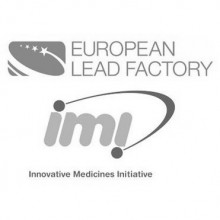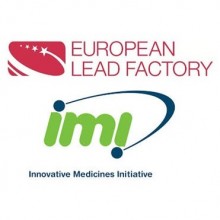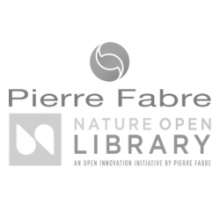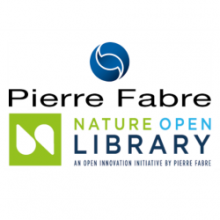European Lead Factory
BioAscent have been selected as the Compound Logistics “Centre of Excellence” for the IMI European Lead Factory (ELF), and manage the 500,000 compound, Joint European Compound Collection.
- 300,000 novel small molecules provided by 7 EU pharma partners
- 200,000 new scaffolds from SMEs for the Public Compound Collection
- Supplying to 8 European Screening Centres sufficient compounds for 48 HTS per year, hit confirmation and SAR follow-up
The ELF is a unique 5 year, public-private partnership that promotes new discoveries via open innovation and crowd sourcing, accelerating the development of new generations of drugs through access to a proprietary, high quality compound collection. The partnership, the first of its kind, creates an unprecedented opportunity to discovery new medicines. It is designed to provide best-in-class resources and funding-in-kind, to academics or SMEs who are working on promising biology targets or chemistry scaffolds, to promote the discovery of novel small molecule candidates, suitable for subsequent optimization either to drug candidates or to high-quality pharmacological tools for the experimental validation of targets.
High Quality Collection
The ELF provides collaborative screening of previously safeguarded, high quality corporate compounds. Around 300,000 compounds contributed by EFPIA members, are being screened against target from both commercially public sources.
More Small Molecules
In addition, a substantial new Public Compound Collection of around 200,000 compounds is being constructed, based on open source collaboration with academics, SMEs and other organisations. Together, the EFPIA and Public compound collections forms the Joint European Compound Collection.
SMSdrug.net
Synthesis, Medicinal Chemistry and Structural Genomics to accelerate UK Drug Discovery
EPSRC-BBSRC-MRC Collaborative Network in Chemical Biology
Vision
SMSdrug.net seeks to develop a strategic alignment of synthetic and medicinal chemists, biologists and industrial end users to provide a blueprint for the provision of chemical probes to support clinical validation and drug discovery efforts within the UK.
Background
In the post-genomic age, opportunities for the development of new clinically validated targets for drug discovery and ultimately medicines are considerable. A major obstacle to the invention of new medicines is the availability and efficient delivery of small-molecule probes which can be used as tools to understand the fundamental biology of these targets.
By engaging with chemists, biologists and industrial end users SMSdrug.net aims to support and foster new collaborations at the chemistry/life science interface to provide new molecular tools for pre-clinical validation of drug targets.
Key Research Themes
- New screening platforms, techniques and technologies.
- Provision of small molecule chemical tools to support biological and clinical research.
- Identification of new drug leads, hits and protein targets.
- Assess role of novel chemical space and provide new capability.
Network Across Institutions in UK
The founder members of the Network are based at University of Strathclyde, University of Sussex, The Structural Genomics Consortium and The European Bioinformatics Institute.
SMSdrug.net is actively engaging academics and representatives from the pharmaceutical industry who are interested in the drug discovery process by identifying and promoting new collaborative interactions at the chemistry/biology interface.
Pierre Fabre
BioAscent collaborate with pharmaceutical and cosmetics multinational, Pierre Fabre, as part of an open innovation initiative promoting the use of natural products in life sciences. Pierre Fabre’s library of ca. 15,000 plant extracts is the largest private collection of its type in the world. BioAscent’s state-of-the-art compound management and logistics facility is ideally placed to share out such an extract library, with in-house expertise to store, process and distribute theses unique samples with care and efficiency. In addition, BioAscent will seek out new open innovation project partners, and as the central hub of the project, will supply all samples pre-processed and HTS-formatted, enabling partners to screen the library easily, with minimal in-house resource.
Natural products are a largely untapped resource, not only in pharma, but in animal health, agrochemistry, and nutrition among others. Pierre Fabre’s collection consists of 15,000 HTS-formatted samples from a biodiverse range of 7,000 plant species, all of which are fully characterised with legal certainty of origin. The availability of this biodiverse collection through BioAscent ensures that open innovation partners will have rapid and easy access to all samples. In addition to Pierre Fabre’s 50 years of experience with natural products, participating organisations will benefit from BioAscent’s expertise in the outsourced management of sample libraries, such as the European Lead Factory’s 500,000 sample-strong collection, for which it formats and distributes samples between multiple pharma companies and academic institutions. For the Pierre Fabre natural products collection, BioAscent will handle secure storage and all processing and logistics, supplying the samples in a ready-to-use HTS-format. This will enable organisations to screen Pierre Fabre’s library without the need for in-house sample storage or expertise, saving time and cost. BioAscent will also broker new partnerships for the initiative, expanding its reach into new areas and fostering more collaborations between life science organisations.
Dr Simon MacKenzie, CEO of BioAscent, commented: “As a state-of-the-art facility, with extensive experience of specialised compound collections, BioAscent is an ideal hub for Pierre Fabre’s collection. Not only do we have the capacity, capability, and expertise to manage, prepare, and distribute the natural plant extract library, but we are also in a prime position to identify and pursue new partners for this and other open innovation initiatives.This will open up Pierre Fabre’s extensive and unique collection to organisations in a variety of areas in life science research.”
For more information, please contact us or see the Pierre Fabre Nature Open Library website.






